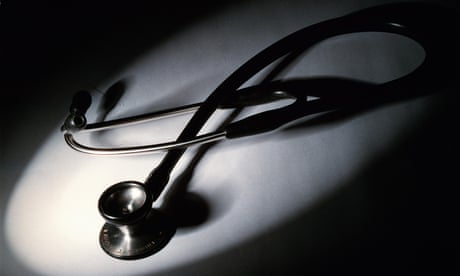- by foxnews
- 08 Apr 2025
Patients dying daily due to poor ‘soft skills’ among Australian surgeons, experts warn
Patients dying daily due to poor ‘soft skills’ among Australian surgeons, experts warn
- by theguardian
- 23 Oct 2022
- in news

More than 1,000 Australians die unnecessarily in hospital each year due to avoidable failures by surgeons, according to experts calling for a senate inquiry.
Graham Beaumont, PhD, and Dr John North are both long-term members of audit committees that review surgical mortality in Australia.
They say patients are dying every day as a result of poor decisions to operate, communication issues, and lacklustre teamwork in operating theatres, as well as incentives for doctors to pursue "futile and unnecessary surgeries".
Beaumont, a member of the Australian and New Zealand Audit of Surgical Mortality committee of the Royal Australasian College of Surgeons, said it was "reasonable to suggest there are in excess of 1,000 avoidable patient surgical deaths per annum across the nation based on the data in the public domain".
"This figure could be several magnitudes higher because decisions to operate made by surgeons are not routinely scrutinised to assess the futility and necessity of surgical interventions. This figure is the great unknown," he said.
As clinical director of the Queensland Audit of Surgical Mortality, North runs the process that provides peer-reviewed feedback about all surgical deaths in Queensland, in both private and public hospitals.
"We hear every day about decision-making and communication failures that lead to surgical deaths and errors that could have been avoided," he said.
A review into the failings of rogue Queensland surgeon Jayant Patel in 2005 cited research suggesting 4,500 Australians died in hospital each year as a result of mistakes and inappropriate procedures.
The review recommended that surgeons should be regularly peer-reviewed to verify their skills, but those recommendations have not been implemented.
"We need a system of convincing, regular peer review so the public is assured that the delivery of surgical interventions is as safe as it can be," Beaumont said.
"The goal should be to capture potential events before they happen. In settings where a preventive peer review is embraced, the rogue operator cannot survive."
Beaumont said international research showed up to 90% of avoidable deaths in surgery exhibit a breakdown in aspects of the soft skills required to communicate, work with others and make consistently good decisions.
"Analysis of Australian data confirms that similar failures cause patient deaths here because surgeons are not trained in how to optimise their decision-making and maximise their success in team-based surgery," he said.
"Very few deaths are attributable solely to the hard skills - the cutting and sewing."
The Royal Australasian College of Surgeons has disputed the avoidable death toll, claiming only about 2% of deaths, or 100 patients, are avoidable surgical deaths a year in Australia.
A spokesperson for RACS said mortality audits provided direct feedback to surgeons and to hospitals to enable reflection and learning.
"RACS surgeons undergo soft skills training during the surgical training program and there is a compulsory continuing professional development (CPD) training post qualification, which includes soft skills," he said. However, Guardian Australia understands soft skills are not a compulsory component of the CPD.
In a study of 9,705 patients in Queensland who died between 2007 and 2017, 399 surgeons said they would have done something differently for 1,228 of the patients. The study, published in the British Journal of Surgery, revealed surgeons said that if they had a second chance, they "would not have operated", "should have refused to operate", or "underestimated the risk of surgery".
Ian Harris, a professor of orthopaedic surgery at UNSW, agreed the current medical system needs a review, questioning the influence of money on decision making.
"The medical system that we have in Australia is not fit for purpose," he said. "It's a medical system that incentivises, rewards and measures healthcare activity - turnover - not health."
Harris said not all surgeons understand the evidence for particular procedures and tend to operate based on what they see other surgeons do.
"Spine fusion for back pain is a good example. There is not very good evidence for it. It's quite invasive, risky and costly, and takes a long time to recover," he said.
"Payment for the public hospital surgeon is around $500 to do a spine fusion but in the workers' compensation sector the surgeon can bill $20,000 for the same procedure - a procedure that may not help the patient," he said.
"The rate of spine fusion is much higher in privately insured patients in Australia than non-privately insured patients.
"So knee replacements, spine fusions, knee arthroscopies are rewarded, incentivised, counted and institutionalised as part of the healthcare system - delivering these products to people without necessarily making patients better."
RACS disputes the influence of financial incentives over surgeons, saying its code of conduct requires surgeons to provide appropriate care for patients which includes informed consent and informed financial consent.
Beaumont said assessment in non-technical skills had been shown to improve safety in other fields such as airlines, where he designed and implemented this type of training over many years.
"Airlines have improved safety over the past 40 years by training non-technical skills.
"Surgery would be much safer overall if it used non-technical skills markers to select, train and regularly assess surgeons."
- by foxnews
- descember 09, 2016
Ancient settlement reveals remains of 1,800-year-old dog, baffling experts: 'Preserved quite well'
Archaeologists have recently unearthed the remarkably well-preserved remains of a dog from ancient Rome, shedding light on the widespread practice of ritual sacrifice in antiquity.
read more


